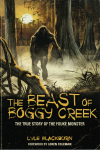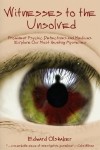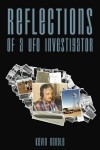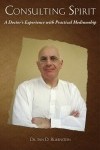The Great Taboo
September 3, 2012
 Under the title of “The History We Don’t Know,” Billy Cox of the Herald Tribune has reviewed our new book, UFOs and Government: A Historical Inquiry by Michael Swords, Robert Powell, et al. Cox notes that Swords, the primary author, “has drilled deep into the vein of primary sources and—along with eight co-authors and contributors—produced an authoritative look at the high-level disarray, inter-agency tensions, and the military’s improvisational attempts at information management even as honest scientists struggled to give them the truth.” While it’s not the first book of its kind, it is in many ways unique. “What separates this accounting from its predecessors are the details harvested from obscure archived material and FOIAs, all of them channeled into a cogent narrative arc that reads like an epic tragedy.” In three additional articles “The Best Minds of My Generation,” “A Furtive Glimpse of Candor,” and “? + $$ = Science,” Cox goes on to mine the book for episodes that allow him to comment on the current quagmire. In one he notes that Swords “has long been frustrated by history’s gatekeepers, their aversion to rendering the complete story of postwar America as UFOs zig-zagged through the early stages of the Cold War. The Western Michigan University emeritus professor says UFOs and Government’s mission statement is to plug that gap as a reference book.” According to Cox, Swords and company have succeeded: “UFOs and Government belongs on those history shelves… this book offers a glimpse into the largely forgotten world that put us in the vacuum that cripples us today.” Unlike in this summary, Cox doesn’t wait until the end of his review to let you know what he thinks of the book—in the very first sentence, he calls it “The most important book on the origins of our current policy on The Great Taboo …”
Under the title of “The History We Don’t Know,” Billy Cox of the Herald Tribune has reviewed our new book, UFOs and Government: A Historical Inquiry by Michael Swords, Robert Powell, et al. Cox notes that Swords, the primary author, “has drilled deep into the vein of primary sources and—along with eight co-authors and contributors—produced an authoritative look at the high-level disarray, inter-agency tensions, and the military’s improvisational attempts at information management even as honest scientists struggled to give them the truth.” While it’s not the first book of its kind, it is in many ways unique. “What separates this accounting from its predecessors are the details harvested from obscure archived material and FOIAs, all of them channeled into a cogent narrative arc that reads like an epic tragedy.” In three additional articles “The Best Minds of My Generation,” “A Furtive Glimpse of Candor,” and “? + $$ = Science,” Cox goes on to mine the book for episodes that allow him to comment on the current quagmire. In one he notes that Swords “has long been frustrated by history’s gatekeepers, their aversion to rendering the complete story of postwar America as UFOs zig-zagged through the early stages of the Cold War. The Western Michigan University emeritus professor says UFOs and Government’s mission statement is to plug that gap as a reference book.” According to Cox, Swords and company have succeeded: “UFOs and Government belongs on those history shelves… this book offers a glimpse into the largely forgotten world that put us in the vacuum that cripples us today.” Unlike in this summary, Cox doesn’t wait until the end of his review to let you know what he thinks of the book—in the very first sentence, he calls it “The most important book on the origins of our current policy on The Great Taboo …”
Now Available: Soulmaking
August 2, 2012
 In this “enchanting little book,” philosopher and fortean Michael Grosso seeks to understand some of the stranger experiences in his life, including those involving ghosts, UFOs, and the like, all of which extended his perceptions of reality. He calls this an adventure in soulmaking, and his just re-released book on the subject: Soulmaking: Uncommon Paths to Self-Understanding. When it was first published, Human Nature magazine prasied the book, saying that “Soulmaking is a fine autobiographical and thus personal contribution by Michael Grosso, who seems to be well aware of his responsibility as a writer on such a controversial and difficult subject.” And researcher Ken Ring commented that Grosso’s stories “beguile us with their undeniable mysteries like an unforgettable exotic perfume.” This edition features a cover painting by Grosso himself.
In this “enchanting little book,” philosopher and fortean Michael Grosso seeks to understand some of the stranger experiences in his life, including those involving ghosts, UFOs, and the like, all of which extended his perceptions of reality. He calls this an adventure in soulmaking, and his just re-released book on the subject: Soulmaking: Uncommon Paths to Self-Understanding. When it was first published, Human Nature magazine prasied the book, saying that “Soulmaking is a fine autobiographical and thus personal contribution by Michael Grosso, who seems to be well aware of his responsibility as a writer on such a controversial and difficult subject.” And researcher Ken Ring commented that Grosso’s stories “beguile us with their undeniable mysteries like an unforgettable exotic perfume.” This edition features a cover painting by Grosso himself.
Now Available: UFOs and Government
July 12, 2012
 Get ready: UFOs are about to make history. Governments have been concerned about UFO sighting reports since WWII, but historians have never made a concerted attempt to understand their often contradictory responses to the phenomenon. How could something of such potential technological and national security consequence have left no visible trace in the history books? Whether it’s a conspiracy or not, the subject has been marginalized to such an extent that it’s as if the military never acted with alarm on the heels of a UFO sighting, as if the intelligence community never took up the issue behind closed doors, as if government research and development efforts never attempted to duplicate the phenomenon. But they have. So now a collection of veteran UFO historians and researchers have attempted to address this historical oversight with the publication of a new book entitled UFOs and Government: A Historical Inquiry. The authors have spent more than four years researching thousands of government documents and archives in order to present a work of historical scholarship on the U.S. government’s bungling response to the UFO phenomenon. How and why the U.S. government—and other governments around the world—have dealt with the UFO phenomenon during most of a century is the focus of this historical inquiry. The remarkable story explains much that is new, or at least not commonly known, about the seriousness with which the military and intelligence communities approached the UFO problem internally. It also reveals how the subject became treated as if it were a triviality, and why the United States government deemed it wise to treat it so. Though the book focuses primarily on the U.S. government’s response to the UFO phenomenon—revealing how bureaucracies fight amongst themselves, protect themselves, and in the end fail to serve the public—also included is the treatment of the subject by the governments of Sweden, Australia, France, Spain, and other countries. The book’s international cast of authors was headed by Michael Swords, a retired professor at Western Michigan University with an extensive knowledge of UFO history, and managed by Robert Powell, director of research at the Mutual UFO Network.
Get ready: UFOs are about to make history. Governments have been concerned about UFO sighting reports since WWII, but historians have never made a concerted attempt to understand their often contradictory responses to the phenomenon. How could something of such potential technological and national security consequence have left no visible trace in the history books? Whether it’s a conspiracy or not, the subject has been marginalized to such an extent that it’s as if the military never acted with alarm on the heels of a UFO sighting, as if the intelligence community never took up the issue behind closed doors, as if government research and development efforts never attempted to duplicate the phenomenon. But they have. So now a collection of veteran UFO historians and researchers have attempted to address this historical oversight with the publication of a new book entitled UFOs and Government: A Historical Inquiry. The authors have spent more than four years researching thousands of government documents and archives in order to present a work of historical scholarship on the U.S. government’s bungling response to the UFO phenomenon. How and why the U.S. government—and other governments around the world—have dealt with the UFO phenomenon during most of a century is the focus of this historical inquiry. The remarkable story explains much that is new, or at least not commonly known, about the seriousness with which the military and intelligence communities approached the UFO problem internally. It also reveals how the subject became treated as if it were a triviality, and why the United States government deemed it wise to treat it so. Though the book focuses primarily on the U.S. government’s response to the UFO phenomenon—revealing how bureaucracies fight amongst themselves, protect themselves, and in the end fail to serve the public—also included is the treatment of the subject by the governments of Sweden, Australia, France, Spain, and other countries. The book’s international cast of authors was headed by Michael Swords, a retired professor at Western Michigan University with an extensive knowledge of UFO history, and managed by Robert Powell, director of research at the Mutual UFO Network.
Now on Facebook
June 11, 2012
![]() Every now and then someone asks: “How can I keep track of your new titles and other news about Anomalist Books?” There are several answers to that question. The old-fashioned way is to come to the website, of course, and read the “News.” Or you can put the News in your RSS feed by plugging in this url: http://www.anomalistbooks.com/news/. But now, thanks to Chris Savia, the weekend news editor of The Anomalist, there is a third way: you can join Anomalist Books on Facebook. Who knows, one day we might even tweet.
Every now and then someone asks: “How can I keep track of your new titles and other news about Anomalist Books?” There are several answers to that question. The old-fashioned way is to come to the website, of course, and read the “News.” Or you can put the News in your RSS feed by plugging in this url: http://www.anomalistbooks.com/news/. But now, thanks to Chris Savia, the weekend news editor of The Anomalist, there is a third way: you can join Anomalist Books on Facebook. Who knows, one day we might even tweet.
Entertaining, Suspenseful, and Intriguing
April 27, 2012
 There is probably a good reason that The Beast of Boggy Creek: The True Story of the Fouke Monster by Lyle Blackburn is the fastest selling Anomalist Book of all time. Maybe it’s because Lyle is a famous rock musician. Maybe it’s because the film The Legend of Boggy Creek made such a impression on so many people. Or maybe it’s simply because is the book is such a thorough, well researched, and well written portrait of terrifying creature. In a feature entitled “A monster of a story,” Aaron Brand of the Texarkana Gazette wrote: “A coherent, thorough and entertaining yarn about the Fouke Monster…Part of his [Blackburn’s] complete portrait includes exploring Fouke culture and the genesis of monster stories that sprang up in the area…Blackburn employs his descriptive powers to set the scene and give readers an idea of the local landscape. Reading his descriptions, it’s easy to see why people may believe they see extraordinary things, whether real or imagined, down in the woods.” Even the no-nonesense Peter Rogerson of Magonia was impressed. He views Blackburn “essentially as a folklorist” and praises his approach: “Blackburn goes beyond simply interviewing witnesses and presents the stories in the context of the history and development of the area, tells the story behind the film and its influence on the cinema and the Beast’s influence on popular culture.” Rogerson calls The Beast of Boggy Creek an “excellent book.” Of course, the “choir” loves the book. too. Nick Redfern, on Cryptomundo, calls it “A major, major addition to the field of monster-hunting.” And Bob Yarger of the Texas Bigfoot Conservancy wrote: “The Beast of Boggy Creek is, besides being a first-rate piece of journalism regarding this unknown creature and the movie inspired by it, the comprehensive reference to the Fouke Monster and a thoroughly entertaining read, suspenseful and intriguing.”
There is probably a good reason that The Beast of Boggy Creek: The True Story of the Fouke Monster by Lyle Blackburn is the fastest selling Anomalist Book of all time. Maybe it’s because Lyle is a famous rock musician. Maybe it’s because the film The Legend of Boggy Creek made such a impression on so many people. Or maybe it’s simply because is the book is such a thorough, well researched, and well written portrait of terrifying creature. In a feature entitled “A monster of a story,” Aaron Brand of the Texarkana Gazette wrote: “A coherent, thorough and entertaining yarn about the Fouke Monster…Part of his [Blackburn’s] complete portrait includes exploring Fouke culture and the genesis of monster stories that sprang up in the area…Blackburn employs his descriptive powers to set the scene and give readers an idea of the local landscape. Reading his descriptions, it’s easy to see why people may believe they see extraordinary things, whether real or imagined, down in the woods.” Even the no-nonesense Peter Rogerson of Magonia was impressed. He views Blackburn “essentially as a folklorist” and praises his approach: “Blackburn goes beyond simply interviewing witnesses and presents the stories in the context of the history and development of the area, tells the story behind the film and its influence on the cinema and the Beast’s influence on popular culture.” Rogerson calls The Beast of Boggy Creek an “excellent book.” Of course, the “choir” loves the book. too. Nick Redfern, on Cryptomundo, calls it “A major, major addition to the field of monster-hunting.” And Bob Yarger of the Texas Bigfoot Conservancy wrote: “The Beast of Boggy Creek is, besides being a first-rate piece of journalism regarding this unknown creature and the movie inspired by it, the comprehensive reference to the Fouke Monster and a thoroughly entertaining read, suspenseful and intriguing.”
Now Available: Witnesses to the Unsolved
April 23, 2012
 We are fascinated by the use of psychic detectives and mediums to obtain information about historical events that remain mysteries—especially when what they reveal can be corroborated retroactively. And that’s just what journalist Edward Olshaker has done in Witnesses to the Unsolved: Prominent Psychic Detectives and Mediums Explore Our Most Haunting Mysteries. Now available in paperback (and soon as an ebook) for the first time, this award-winning book reads like a cross between Medium and Unsolved Mysteries. Among the cases covered are the deaths of Martin Luther King, Jr., White House deputy counsel Vincent Foster, singer/guitarist Kurt Cobain, Secretary of Commerce Ron Brown, CIA chief William Colby, among others. Probing the unsolved are Olshaker’s highly regarded cast of police psychics, including Nancy Myer, Robert Cracknell, and Bertie Catchings; and prominent mediums Betty Muench, Janet Cyford, and Philip Solomon. The result, says Colin Wilsonin his foreword to the book, is “a remarkable piece of investigative journalism.”
We are fascinated by the use of psychic detectives and mediums to obtain information about historical events that remain mysteries—especially when what they reveal can be corroborated retroactively. And that’s just what journalist Edward Olshaker has done in Witnesses to the Unsolved: Prominent Psychic Detectives and Mediums Explore Our Most Haunting Mysteries. Now available in paperback (and soon as an ebook) for the first time, this award-winning book reads like a cross between Medium and Unsolved Mysteries. Among the cases covered are the deaths of Martin Luther King, Jr., White House deputy counsel Vincent Foster, singer/guitarist Kurt Cobain, Secretary of Commerce Ron Brown, CIA chief William Colby, among others. Probing the unsolved are Olshaker’s highly regarded cast of police psychics, including Nancy Myer, Robert Cracknell, and Bertie Catchings; and prominent mediums Betty Muench, Janet Cyford, and Philip Solomon. The result, says Colin Wilsonin his foreword to the book, is “a remarkable piece of investigative journalism.”
The Balanced Casebook of a Top UFO Investigator
April 2, 2012
 Did you catch what Brad Steiger had to say about Kevin Randle’s new book, Reflections of a UFO Investigator? “From a high school boy reading UFO books in study hall to a tireless investigator searching for some glimpse of the true reality behind the greatest phenomenon of our time, Kevin Randle shares every foot of the path he has trod as a UFO investigator. From abductions to contactees, Randle tells it the way he sees it. Known to many as one of the researchers who made us reconsider the story of the UFO crash at Roswell, I found the chapters recreating his painstaking examination of the evidence for that controversial case particularly interesting. The Willingham investigation will serve as a caution to investigators who may make their conclusions too rapidly. If a case is too good to be true, it may well be just that…too good to be true. Randle presents us with the balanced casebook of a top investigator of the UFO enigma.” Even John Harney over at Magonia had a few good things to say about Randle’s book, mostly praising his methods of investigation and his interviewing of witnesses, and concluding that this is “a book for the serious UFO enthusiast…” And if you want yet more Reflections from Randle, check out the latest issue of UFO Magazine. You can’t miss it, as the cover of issue 158 has Randle in uniform, with a rifle across his lap. The cover line reads: “His newest book: In service to his country and to research.”
Did you catch what Brad Steiger had to say about Kevin Randle’s new book, Reflections of a UFO Investigator? “From a high school boy reading UFO books in study hall to a tireless investigator searching for some glimpse of the true reality behind the greatest phenomenon of our time, Kevin Randle shares every foot of the path he has trod as a UFO investigator. From abductions to contactees, Randle tells it the way he sees it. Known to many as one of the researchers who made us reconsider the story of the UFO crash at Roswell, I found the chapters recreating his painstaking examination of the evidence for that controversial case particularly interesting. The Willingham investigation will serve as a caution to investigators who may make their conclusions too rapidly. If a case is too good to be true, it may well be just that…too good to be true. Randle presents us with the balanced casebook of a top investigator of the UFO enigma.” Even John Harney over at Magonia had a few good things to say about Randle’s book, mostly praising his methods of investigation and his interviewing of witnesses, and concluding that this is “a book for the serious UFO enthusiast…” And if you want yet more Reflections from Randle, check out the latest issue of UFO Magazine. You can’t miss it, as the cover of issue 158 has Randle in uniform, with a rifle across his lap. The cover line reads: “His newest book: In service to his country and to research.”
Now Available: The Beast of Boggy Creek
March 6, 2012
 Growing up in Texas, Lyle Blackburn became fascinated with the legends, lore, and sighting reports of alleged real-life monsters. Today, the infamous frontman of the devilishly eclectic rock band, Ghoultown, has authored his first book, The Beast of Boggy Creek: The True Story of the Fouke Monster, all about the large, legendary, hairy, man-like creature of Southern Arkansas known as the Fouke monster. Over the years, the creature has been seen by numerous witnesses, including respected citizens, experienced hunters, famous musicians, and even a police officer. The encounters were often so shocking, they served as inspiration for the classic horror film, The Legend of Boggy Creek, by Charles B. Pierce. And frightening encounters with the Fouke monster continue to be reported to this day. With a foreword by Loren Coleman, the book has already drawn advance praise from people such as Nick Redfern who believes the book is “Destined to become a cryptozoological classic!”
Growing up in Texas, Lyle Blackburn became fascinated with the legends, lore, and sighting reports of alleged real-life monsters. Today, the infamous frontman of the devilishly eclectic rock band, Ghoultown, has authored his first book, The Beast of Boggy Creek: The True Story of the Fouke Monster, all about the large, legendary, hairy, man-like creature of Southern Arkansas known as the Fouke monster. Over the years, the creature has been seen by numerous witnesses, including respected citizens, experienced hunters, famous musicians, and even a police officer. The encounters were often so shocking, they served as inspiration for the classic horror film, The Legend of Boggy Creek, by Charles B. Pierce. And frightening encounters with the Fouke monster continue to be reported to this day. With a foreword by Loren Coleman, the book has already drawn advance praise from people such as Nick Redfern who believes the book is “Destined to become a cryptozoological classic!”
Excellent, Entertaining, and Important
February 24, 2012
 A bunch of great reviews delivered quickly is a publisher’s dream. And that’s just what we’ve been blessed with for Consulting Spirit: A Doctor’s Experience with Practical Mediumship by Dr. Ian Rubenstein. Journalist and author of Randi’s Prize Robert McLuhan found Consulting Spirit to be “an excellent book.” His review over at Paranormalia states: “I found [Ian Rubenstein’s] detailed descriptions of the inner process [of mediumship] quite useful. I also resonated with the way the author dealt with his new experiences. The tone is well judged: he is properly sceptical, in the sense of examining and questioning them, but he doesn’t let this get in the way of his curiosity. He doesn’t panic or try to suppress his intuitions. Nor does he agonise about what people might think when he develops his mediumship. He just gets on with it. In fact it surprised me how enthusiastically he embraced his new calling, while continuing his professional work…The book is breezy like a novel, written largely in dialogue, which makes it an easy and entertaining read. As I say, it’s informative about the process of becoming a medium, and I really recommend it. But more than that, it’s also an important book. Rubenstein has shown how it is possible for an ordinary non-psychic member of society, someone who in his professional work is embedded in rationalist thinking, not merely to adjust to psychic intuition when it arrives unbidden, but to learn how to use it for the benefit of others.” Be sure to read the extensive comments following the review, where Rubenstein replies to reader questions.
A bunch of great reviews delivered quickly is a publisher’s dream. And that’s just what we’ve been blessed with for Consulting Spirit: A Doctor’s Experience with Practical Mediumship by Dr. Ian Rubenstein. Journalist and author of Randi’s Prize Robert McLuhan found Consulting Spirit to be “an excellent book.” His review over at Paranormalia states: “I found [Ian Rubenstein’s] detailed descriptions of the inner process [of mediumship] quite useful. I also resonated with the way the author dealt with his new experiences. The tone is well judged: he is properly sceptical, in the sense of examining and questioning them, but he doesn’t let this get in the way of his curiosity. He doesn’t panic or try to suppress his intuitions. Nor does he agonise about what people might think when he develops his mediumship. He just gets on with it. In fact it surprised me how enthusiastically he embraced his new calling, while continuing his professional work…The book is breezy like a novel, written largely in dialogue, which makes it an easy and entertaining read. As I say, it’s informative about the process of becoming a medium, and I really recommend it. But more than that, it’s also an important book. Rubenstein has shown how it is possible for an ordinary non-psychic member of society, someone who in his professional work is embedded in rationalist thinking, not merely to adjust to psychic intuition when it arrives unbidden, but to learn how to use it for the benefit of others.” Be sure to read the extensive comments following the review, where Rubenstein replies to reader questions.
In his review of the book, Tom Ruffles at the Society for Psychical Research writes: ” …this is an extremely readable book. Its author comes across as completely honest, with no position to defend, but taking the reader where he sees the evidence leading him. As a person he seems very nice, sociable, and much more open about himself with patients than the doctors I have come across. There is a sense that his willingness to try new things provides a flexibility which can assist him to integrate his spiritual life into his everyday one more easily than would be the case with a person more mentally rigid…Those willing to entertain the possibility that something really is going on here will find Consulting Spirit (a great punning title) an unusual but very useful case study.”
And finally, novelist Michael Prescott has some keen insights into Rubenstein’s book as well. At Michael Prescott’s Blog he writes: “To me, books like this are in some ways more valuable than scientific studies involving control groups, double-blind test conditions, and statistical analysis. I’m not sure that any amount of laboratory data will persuade people of the reality of mediumship, but a sober, common-sense account like Dr. Rubenstein’s may succeed where tables, charts, and graphs are likely to fail. Reading his story, I couldn’t help feeling that if I were in his shoes, I would have had many of the same questions and considered many of the same non-paranormal explanations. Nothing in his book struck me as exaggerated or embellished; if anything, the author’s tendency seems to be to play down the more dramatic elements of his story. His sense of humor keeps him—and the reader—firmly grounded, no matter how apparently outlandish some of the developments in his narrative may seem…Rubenstein presents an array of supernatural phenomena in a calm, sober voice, laced with humor and occasional self-doubt. I found his story very appealing, and I think you will too.”
Now Available: Reflections of a UFO Investigator
January 4, 2012
 There aren’t many truly qualified UFO investigators these days. It takes a lot of experience, a willingness to learn from your mistakes, and a dogged determination to get at the truth. Kevin Randle is one of a rare breed. He’s been doing it for nearly half a century. He started investigating UFOs in high school and kept on doing it on the side through his years of military service (which in one case led some townspeople to think the Air Force was investigating the case when it was just Kevin on his own). How UFO investigation should be done, and how Kevin has done it all those years, is revealed in his 21st UFO book: Reflections of a UFO Investigator, just published by Anomalist Books. Other than his investigation of the Roswell case, for which Kevin is perhaps best known, others detailed in this memoir include the Carroll Wayne Watts case, the Rhodes photographs, and the Santa Rosa crash. We’re pretty much certain that you’ll be surprised by Randle’s brutally honest look back at his career in UFO research.
There aren’t many truly qualified UFO investigators these days. It takes a lot of experience, a willingness to learn from your mistakes, and a dogged determination to get at the truth. Kevin Randle is one of a rare breed. He’s been doing it for nearly half a century. He started investigating UFOs in high school and kept on doing it on the side through his years of military service (which in one case led some townspeople to think the Air Force was investigating the case when it was just Kevin on his own). How UFO investigation should be done, and how Kevin has done it all those years, is revealed in his 21st UFO book: Reflections of a UFO Investigator, just published by Anomalist Books. Other than his investigation of the Roswell case, for which Kevin is perhaps best known, others detailed in this memoir include the Carroll Wayne Watts case, the Rhodes photographs, and the Santa Rosa crash. We’re pretty much certain that you’ll be surprised by Randle’s brutally honest look back at his career in UFO research.









